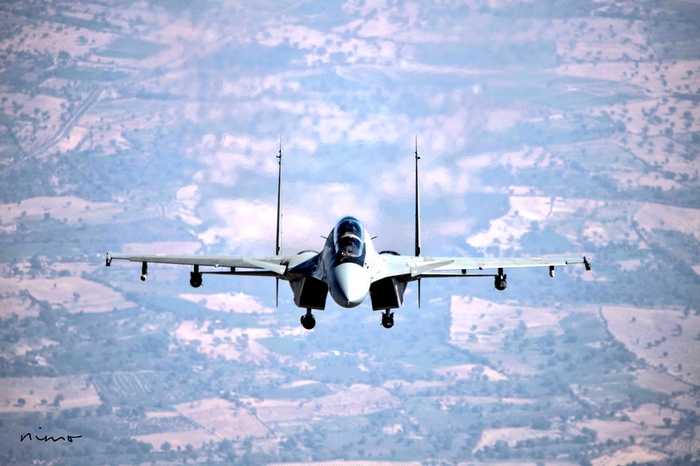Published 17:14 IST, May 18th 2024
The Indian Army has drastically reduced its dependency on foreign imports for ammunition, thanks to the 'Make in India' initiative.
Advertisement
New Delhi: The Indian Army has significantly reduced its reliance on foreign imports to meet its defence needs under the 'Make in India' initiative, particularly in the field of ammunition. Senior defence officials have highlighted the pivotal role of the private sector in achieving this milestone, with a substantial portion of ammunition now being produced domestically.
In recent years, the Indian Army has made remarkable progress in indigenizing ammunition production for various weapon systems, including tanks, artillery guns, air defence missiles, and grenade launchers. "The Indian Army has a budget of around Rs 20,000 crore to acquire ammunition for its existing inventory of weapon systems. Previously, about 35-40% of this budget was spent on importing ammunition," a defence official told reporters. "Now, that requirement has been cut down to less than 10%, and we aim to reduce it further in the next couple of years," the official added.
Advertisement
The indigenisation drive has seen significant contributions from both public and private sectors. Notable entities include Munitions India Limited (MIL), Solar Industries Limited, Adani Defence, Hughes Precision, and SMPP Limited. These firms have been instrumental in reducing import dependency and expanding India's ammunition export capabilities.
Indigenisation propelling India to global stage
The indigenisation of ammunition has not only cut down on imports but also enabled the country to cater to global demand. Public sector firms like MIL have received substantial export orders for artillery shells, fostering the growth of supporting industries. Defence officials noted that both private and public sector companies are developing high-precision guided artillery ammunition, which will enhance the Indian Army's artillery capabilities.
Advertisement

The Indian Army is actively supporting the industry by helping them develop the required ammunition and allowing time for product improvement. This partnership has led to the emergence of new firms in the defence sector, which is expected to further improve the situation.
India’s defence outlook: Major Defence Deals
In February 2024, the Cabinet Committee on Security approved several major defence deals worth over Rs 92,000 crore to enhance the combat capabilities of the armed forces. These investments align with India's broader strategy to boost self-reliance in defence manufacturing. Among the key projects approved are:
Advertisement

- Su-30MKI Fighter Jet Upgrade: Hindustan Aeronautics Limited (HAL) and the Defence Research and Development Organisation (DRDO) will undertake a Rs 60,000 crore project to upgrade the Su-30MKI fighter jets. This includes integrating new radars, mission control systems, electronic warfare capabilities, and advanced weapon systems.
- Extended-Range BrahMos Missiles: The acquisition of over 220 BrahMos supersonic cruise missiles, with a strike range of 450 km, for the Indian Navy. Valued at approximately Rs 19,500 crore, this deal is the largest-ever contract for BrahMos missiles.
- MiG-29 Fighter Engine Production: HAL will collaborate with Russia to manufacture new advanced engines for the MiG-29 fighters, with the project costing around Rs 5,300 crore.
- Advanced Radars and Air Defence Guns: The approval of high-powered radars and new L-70 air defence guns, each project valued at approximately Rs 6,000 crore, will enhance India's radar coverage and air defence capabilities.
- Killer Drones and Supersonic Missiles: The acquisition of BrahMos supersonic cruise missiles is one of the most significant contracts approved. These missiles, with a 450 km strike range, will be deployed on frontline warships of the Indian Navy. "The BrahMos is the main weapon for anti-ship and attack operations for the Indian Navy warships which have been regularly firing the weapon system," top government sources noted. The contract between BrahMos Aerospace and the Ministry of Defence is expected to be signed in early March.
The indigenisation efforts under the 'Make in India' policy have positioned the Indian Army to become more self-reliant and strategically independent. By fostering public-private partnerships and approving significant defence deals, India is enhancing its defence capabilities while reducing its dependency on foreign imports. The continued focus on indigenisation is expected to further strengthen the Indian Army's operational readiness and global standing.
17:14 IST, May 18th 2024